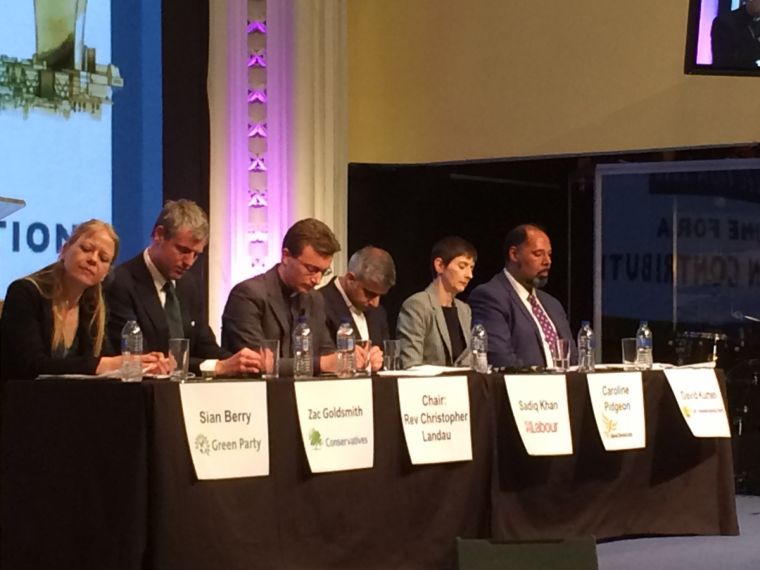London Mayoral election: How should Christians vote?
There were very few empty seats at a church hustings on Tuesday night for the London Mayoral election.
Christians packed into Kensington Temple, a Pentecostal church in west London, which left latecomers with standing room only. One commentator remarked beforehand on Twitter there were likely to be more empty promises than empty seats.
And largely, that seemed to be true.

At one stage the debate chair asked for a display of hands from people who felt reassured that any of the candidates could solve London's problem with social housing. I counted five hands in a room of several hundred.
Perhaps the lacklustre performance was because this campaign has dragged on since last September so all the candidates are thoroughly battle weary. That certainly seemed the case, at least.
It was notable that the largest applause of the night was for the UKIP representative who played to the crowd on issues such as persecution of Christians in the workplace and Ofsted inspections of churches. David Kurten, who acted as a spokesperson for the absent Peter Whittle, was also the only candidate to say he was a Christian.
The most exercised the audience got was when one woman stood up and announced: "Christians have been persecuted for too long in this country and something needs to be done about it in this election." Issues such as social housing, homelessness and fixed-odd betting terminals passed by with far less interest.

A few conversations after the debate revealed a relatively high number of people who were considering voting for the Christian People's Alliance, a fringe party who had not been invited to participate in the debate between the five mainstream candidates.
For me, both these observations are concerning.
Christians engaging in politics have a choice. Do we adopt a purist, dogmatic theology which only allows for straight forward gospel proclamation? Or do we take a wider view and work with others who might not share our exact views but with whom we agree on enough, and with whom we can get something done, even if it isn't precisely as we would like it in an ideal world?
I sometimes think when Christians vote we forget the Fall. We expect politics to be perfectly aligned with our beliefs and are surprised when it isn't, so we run for fringe parties.
Politics, like the rest of creation, is fallen. It is messy. But if we want to change our country for the Kingdom I believe we need to work within the mainstream political movements. We must reject isolationist theology which refuses to work alongside others for the wider good.
It is always better to get some good done than none.
I got the impression that Christians leaving Tuesday night's debate were faced with a question: do we protect our own interests first and foremost and vote for someone who we feel most aligned to? Or do we look beyond ourselves and our own desires to what would benefit the rest of society the most? A similar question faces voters in the United States.
I call the former option selfish democracy. The second is more Christ-like.
"Love your neighbour as yourself." That means putting others' interests first. In our lives, and in how we vote.











